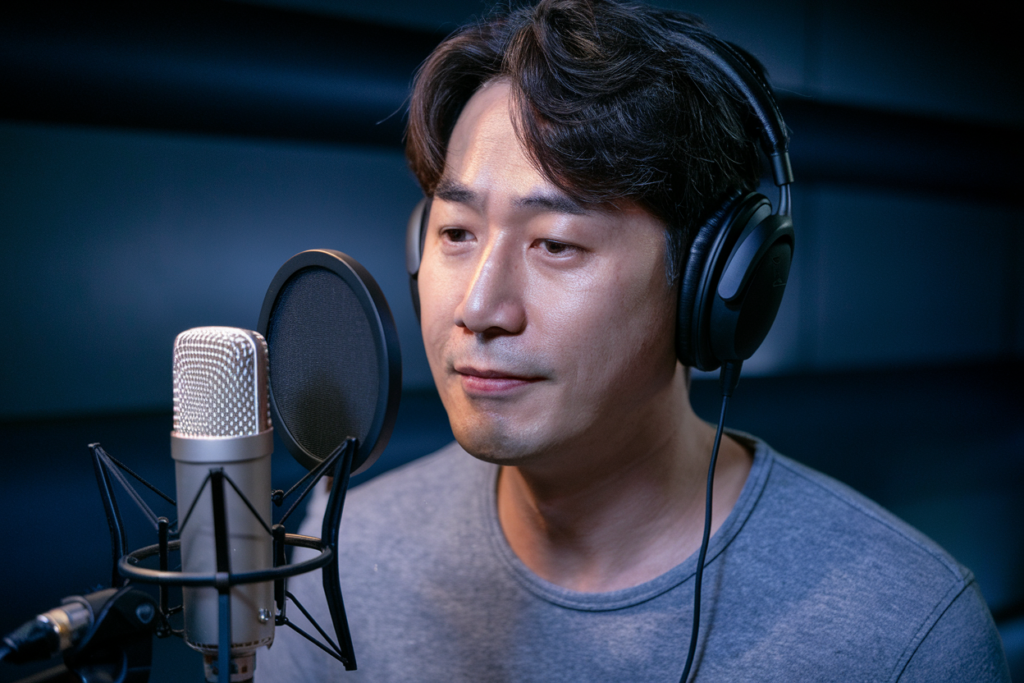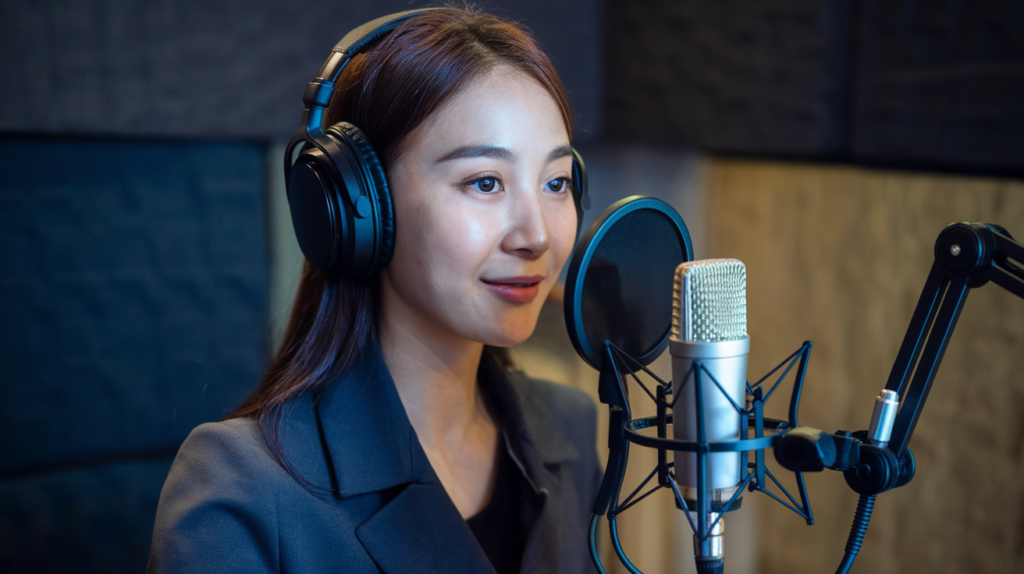Key Takeaways
- Understanding Korean Accents: Familiarity with various Korean accents is essential for voice actors to convey authenticity and emotional depth in dubbing.
- Major Dialects Overview: The Seoul, Gyeongsang, Jeolla, Chungcheong, and Gangwon dialects each have unique characteristics that influence character portrayal.
- Impact on Audience Connection: Choosing the right accent enhances viewer engagement by aligning characters’ identities with cultural nuances, fostering empathy.
- Importance of Character Authenticity: Accurate use of regional dialects helps voice artists breathe life into roles, making stories more relatable and immersive.
- Target Audience Considerations: Selecting an accent based on the target demographic can strengthen emotional connections and improve narrative impact.
- Genre-Specific Accent Selection: Different genres benefit from specific accents; comedic works may favor light-hearted dialects while dramas require more expressive tones.
Ever wondered which Korean accent is best for dubbing? With the rise of K-dramas and films gaining global popularity, finding the right accent can make or break your project. You want an accent that captures the essence of the characters while resonating with your audience.
Overview of Korean Accents
Korean accents play a vital role in conveying authenticity and emotion in dubbing. Understanding these accents helps voice actors connect more deeply with characters, creating a richer experience for the audience.
Major Dialects in Korea
Korea features several major dialects, each reflecting unique cultural nuances.
- Seoul Dialect: Often regarded as the standard accent, it’s widely understood across the country. Voice talents often use this accent for mainstream media.
- Gyeongsang Dialect: Spoken in regions like Busan and Daegu, it has a distinct intonation that can add regional flavor to characters.
- Jeolla Dialect: This accent carries softer tones and is common in southwestern areas. It can evoke warmth and familiarity.
- Chungcheong Dialect: Known for its relaxed pronunciation, it creates an easy-going character portrayal.
- Gangwon Dialect: With its unique melodic qualities, this dialect brings an intriguing touch to voiceovers set in mountainous areas.
Characteristics of Each Accent
Each accent has defining characteristics that affect how voice actors portray their roles.
- Pronunciation Variations: Different accents alter vowel sounds and consonant emphasis. Seoul’s clarity contrasts sharply with the Gyeongsang dialect’s sharpness.
- Intonation Patterns: Intonation varies significantly; the Jeolla dialect’s soft rise and fall adds emotional depth while other accents may provide a more straightforward delivery.
- Expressiveness Level: Some accents are inherently expressive—like those from Gyeongsang—making them suitable for dynamic or intense characters.
- Cultural Connotations: Accents carry cultural weight; using them accurately respects regional identities and enhances viewer connection.
Choosing the right Korean accent enhances voiceover projects by ensuring they resonate with audiences both locally and internationally.
Importance of Accent in Dubbing
Selecting the right Korean accent is crucial for effective dubbing. Accents shape how audiences connect with characters and stories, enhancing the overall viewing experience.
Impact on Audience Perception
Accents influence how viewers perceive characters and their backgrounds. A voice actor’s use of a specific Korean dialect can evoke familiarity or authenticity, aligning the character’s identity with cultural nuances. For instance, using a Seoul accent might resonate more with urban audiences, while a Gyeongsang dialect may appeal to those from southeastern regions. This connection fosters empathy and engagement, making your project more relatable.
Role in Character Authenticity
Character authenticity hinges on accents that reflect real-life speech patterns. When voice artists employ regional dialects accurately, they breathe life into roles, allowing for deeper emotional resonance. A well-cast voiceover talent who masters these subtleties elevates storytelling by capturing each character’s essence authentically. The audience easily recognizes when an actor genuinely embodies their role through precise accent usage, enhancing believability and immersion in the narrative.
Analyzing Popular Korean Accents for Dubbing
Choosing the right Korean accent for dubbing can make a significant difference in how the audience connects with the characters. Let’s dive into some of the most popular accents and their unique attributes.
Seoul Accent
The Seoul accent stands out as one of the most recognized accents in South Korea. Characterized by its clear pronunciation and standard intonation, this accent resonates well with urban audiences. Voice actors using the Seoul dialect often convey a sense of sophistication and modernity, making it ideal for contemporary roles. The clarity allows voice talents to deliver emotional depth, enhancing character relatability. This accent is frequently favored in K-dramas aimed at international viewers who might find familiarity in its sounds.
Busan Accent
The Busan accent offers a distinct charm that sets it apart from other regional dialects. Known for its melodic intonations and softer consonants, this accent captures a warm and friendly vibe. When voice artists employ the Busan dialect, they bring authenticity to characters rooted in southeastern culture, often portraying down-to-earth personas or comedic roles. This connection fosters empathy among audiences familiar with southern cultural nuances, making it an excellent choice for projects aiming to evoke genuine emotions.
Jeolla Accent
The Jeolla accent features unique pronunciation patterns that reflect rich local heritage. Its characteristics include elongated vowel sounds and distinctive pitch variations that give it an expressive quality. Using this dialect can enhance storytelling by adding layers of emotion and authenticity—perfect for narrative-driven content where cultural context matters significantly. Voice actors skilled in the Jeolla dialect can effectively portray characters with deep roots in their communities, inviting viewers to immerse themselves fully in the story.
Understanding these accents empowers you to choose voiceover talent who can authentically represent your project’s vision while resonating with diverse audiences around the globe.
Factors to Consider When Choosing an Accent
Selecting the right Korean accent for dubbing significantly influences audience engagement and character portrayal. Several factors contribute to this decision.
Target Audience Considerations
Understanding your target audience shapes your choice of accent. Different accents resonate with various demographics. For instance, if your project targets urban viewers, a Seoul accent might create familiarity and enhance relatability. Alternatively, if appealing to audiences from southeastern regions, the Gyeongsang dialect can evoke authenticity and warmth. Think about who will be watching or listening; aligning the voiceover with their cultural background can strengthen emotional connections and boost immersion in the narrative.
Genre-Specific Preferences
Genre plays a crucial role in accent selection as well. Comedic projects may benefit from accents that convey charm and humor—like the melodic intonations of the Busan dialect. For dramatic roles, expressive accents such as Jeolla’s could add depth and emotional resonance to characters’ experiences. Recognizing genre-specific preferences helps you choose voice talent whose accent enhances storytelling while fitting seamlessly within the overall tone of your project.
Conclusion
Choosing the right Korean accent for dubbing is crucial in capturing your audience’s attention and enhancing character authenticity. Each accent brings unique cultural nuances that can significantly influence how viewers connect with the story. By understanding these accents and their impact on emotional resonance, you can make informed decisions that elevate your dubbing projects.
Whether you opt for the clarity of the Seoul accent or the warmth of Busan’s melodic tones, each choice shapes the narrative experience. With careful consideration of your project’s target audience and genre, you’ll create a more engaging and immersive viewing experience. Embracing these subtleties in voice talent selection not only enriches storytelling but also resonates deeply with audiences around the world.
Frequently Asked Questions
What is the significance of selecting the right Korean accent for dubbing?
Choosing the right Korean accent for dubbing is crucial because it helps convey the essence of characters and connects with audiences. The chosen accent enhances authenticity, emotional depth, and engagement in voiceover projects, ultimately contributing to their success.
What are the major Korean dialects discussed in the article?
The article covers several key Korean dialects: Seoul, Gyeongsang, Jeolla, Chungcheong, and Gangwon. Each dialect has unique cultural nuances that influence pronunciation, intonation patterns, and expressiveness levels which can impact character portrayal.
How do accents affect audience perception in dubbing?
Accents significantly shape audience perception by evoking familiarity or authenticity. For example, a Seoul accent may resonate more with urban viewers while a Gyeongsang dialect appeals to southeastern audiences. This alignment fosters empathy and deeper engagement with characters.
Why is understanding regional accents important for voice actors?
Understanding regional accents allows voice actors to enhance character authenticity and emotional resonance. Accurate portrayal through specific dialects helps audiences relate better to characters, increasing believability and immersion in storytelling.
What factors should producers consider when choosing an accent for a project?
Producers should consider factors such as target audience demographics and genre when choosing an accent. For instance, urban viewers might connect better with a Seoul accent while comedic roles may benefit from charming accents like Busan’s for enhanced storytelling impact.







